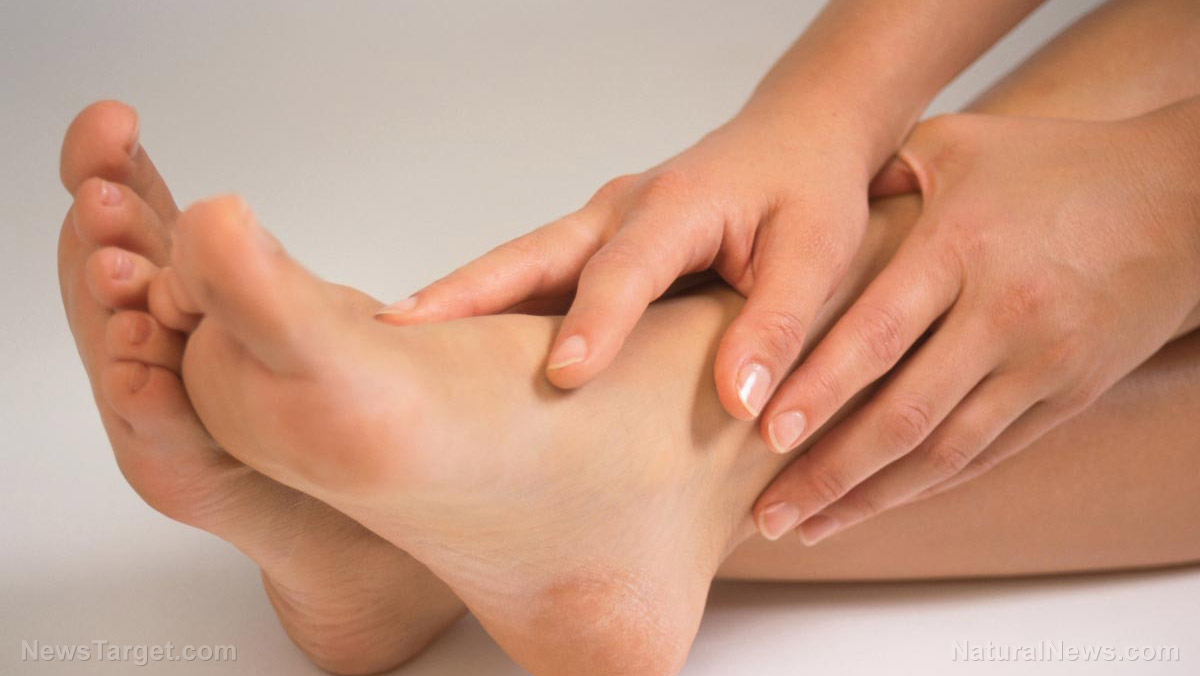Are your “dogs” barking? Researchers develop tech to relieve foot pain for people who have to stand all day
01/02/2018 / By Rhonda Johansson

A new sole design is taking the first steps to “heeling” your foot pain. Researchers from the Simon Fraser University (SFU) have collaborated with WorkSafeBC and Kintec to design and create a new type of insole that will determine how weight-bearing behavior can lead to plantar fasciitis, the most common cause of heel pain. The prototype is still in its infancy — it doesn’t even have a name yet — but the developers of the insole say that the data they collect could be used by orthopedists in understanding how heel pain develops.
It is common knowledge that people who stand all day have a higher likelihood of developing plantar fasciitis. However, what is less known is why it happens. Medical professionals differ in their opinion; some suggest that it has to do with remaining erect all day, others posit that it is based on how a person walks and stands.
To truly determine the causes of plantar fasciitis, project lead and professor in mechatronic systems engineering at SFU Carolyn Sparrey designed an insole that would analyze how foot biomechanics affect plantar tissue loading.
She says: “Plantar fasciitis (PF) is an inflammation of the plantar fascia. It causes significant pain and can result in missed time from work.” Sparrey further elaborates that it has become all the more important to understand how different weight-bearing activities — such as jumping, running, and walking — is distributed in the feet. The force and pressure applied to the feet, she says, can be responsible for why some people are more prone to PF or why certain industries are more likely to have workers who complain of heel pain.
GLYPHOSATE testing is now being applied to all Health Ranger Store branded products. Our in-house lab uses LC-MS-MS (triple quad mass spec). See the full lab science tour video and announcement here. Shop for ultra-clean, lab-tested superfoods, personal care products and more at the Health Ranger Store, the world's most trusted source for clean foods and lab-verified nutritional solutions.
The insole has been designed to differentiate typical workplace positions (such as walking or standing) and then calculate how much pressure is being placed on the feet depending on the activity. What differentiates the insole from other similar products is that Sparrey wanted to take into account passive activities as well.
“For our research differentiating [passive] activities is crucial. Therefore we developed an insole that is capable of differentiating between passive activities to better understand work related foot loading exposure,” she said.
The insole is built using force sensitive resistors. This makes its manufacture relatively inexpensive. Where other plantar foot pain insoles would cost around $10,000-$20,000, this new system is expected to cost $100.
What is plantar fasciitis?
- Around 10 percent of the total population will complain of some form of heel pain in their lifetime. The most common form of this pain is plantar fasciitis.
- Eighty-three percent of people who report heel pain are active working adults, with ages ranging from 25 to 65.
- There is evidence that concludes that PF becomes more common the older one gets.
- Weight-lifters and athletes are more prone to PF.
- Other risk factors include a high BMI and a thick heel pad.
- While there is no conclusive evidence suggesting a link between sex and PF, males have been observed to develop PF more frequently compared to females.
- PF is generally considered to be an inflammation of the fascia. However, recent research says that the condition is caused by collagen degeneration and disorganization. A more appropriate suffix for the pain therefore would be -opathy (diseased) or -osis (condition).
- Podiatrists still do not fully understand the condition.
- Contrary to popular belief, foot rubs do little in “healing” PF. They can alleviate pain for a while, but is considered the least effective therapy for plantar fasciitis. (Related: 9 Natural Remedies for Treating Plantar Fasciitis Pain.)
- Patients with PF are suggested to buy orthopedic shoes. These specially designed shoes offer extra support and protection.
- Some people say that using night splints prevent soft tissue tightness that may occur at night.
Learn more about conditions like plantar fasciitis at Research.news.
Sources include:
Tagged Under: foot biomechanics, foot pain, future tech, heel pain, inflammation, insole technology, inventions, plantar fasciitis, research




















